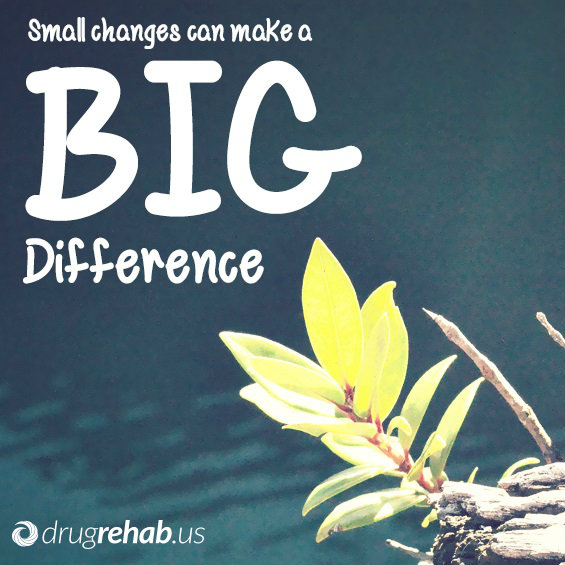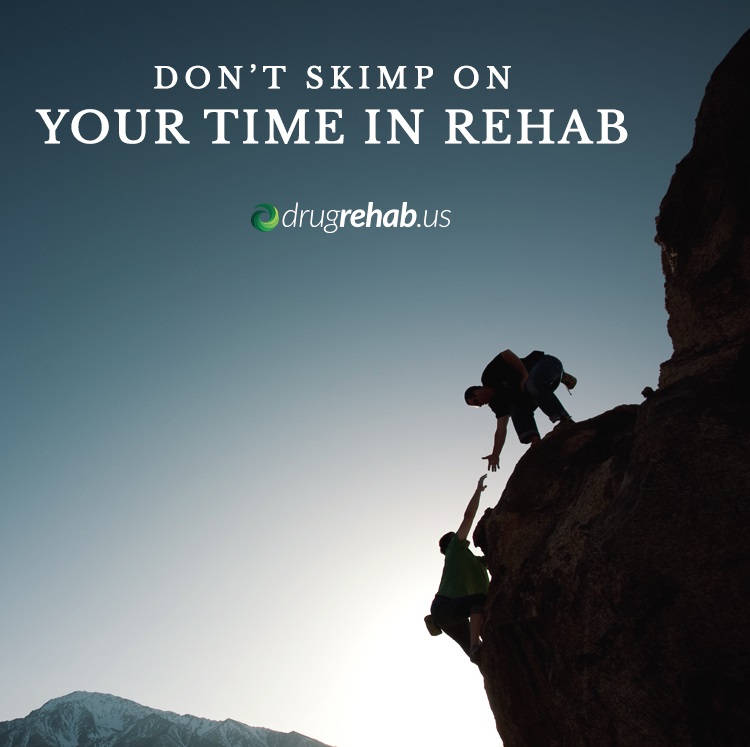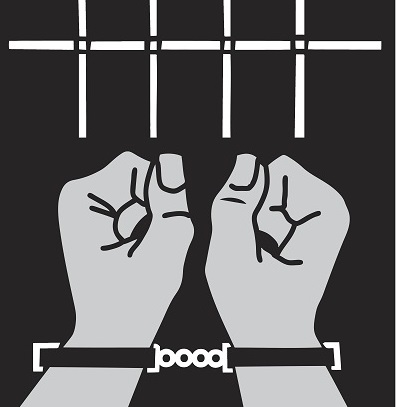30 Apr 2015
Will You Be Successful In Drug Rehab?
Admitting that you have a problem with drug use and that you need treatment for it are big steps to take. You should be commended for coming to this realization and for getting out of the shadow of denial. The next logical step is to go through some kind of rehab or treatment for drug addiction. It’s normal if you are feeling worried about it or if you are concerned that you’ll fail. Drug rehab statistics are unclear on how many people are successful on their first try, but the only way you’ll know is if you go through with it.
What Happens In Drug Rehab?
 To give yourself the best chance of success at rehab you need to have a positive attitude and the commitment to do the work needed to get better. It also helps to know what to expect. Every rehab facility is different and has its own policies and treatment methods. To really know what to expect, talk to someone in admissions and ask all the questions you have about what will happen once you get there.
To give yourself the best chance of success at rehab you need to have a positive attitude and the commitment to do the work needed to get better. It also helps to know what to expect. Every rehab facility is different and has its own policies and treatment methods. To really know what to expect, talk to someone in admissions and ask all the questions you have about what will happen once you get there.
In general, you can expect to have to go through detox, although some facilities will require that you do that before entering. You should also have one-on-one counseling sessions, group support and any number of other activities that promote a healthy, drug-free life after rehab. You should also have a treatment plan that is tailored for your particular needs.
How To Do Well In Rehab
Drug rehabilitation statistics show us that no matter how good rehab is, many addicts will relapse afterward. This doesn’t necessarily mean failure. What it means is that addiction is a chronic disease that requires ongoing treatment. Nevertheless, you can make the most of your rehab experience to give yourself the best chance of avoiding a later relapse.
Make a commitment to the process and devote yourself to the work that the professionals ask you to do. When you aren’t sure about a part of the process, ask questions. Open up fully to your therapists and counselors, and also to your fellow patients. Being open will help you heal and help you make new friends. Rely on the support of your family and friends, even if they can’t be in rehab with you. You will need them when you complete your program.
What About Outpatient Treatment?
Rehab is not the only option for drug addiction treatment. If your life circumstances don’t allow you to spend weeks or months in a rehab facility, you can get treatment that works with your schedule and that allows you to stay home. Statistics for outpatient drug rehab success rates are minimal, but it does work for many people. One benefit is that you can stay with a friend or with family members who care about you and support you.
Whatever kind of treatment you choose for your addiction, the important thing is that you get care. No one can battle addiction alone, and the only way to be successful at being sober is to get the help you need and to ask for support when you need it.
Believe In Yourself. Remember…Small Changes Can Make A Big Difference!
Anyone who has ever had a pet knows the healing power of animals. Having a pet makes you feel needed and loved. A pet provides you with a responsibility outside yourself. Animals lower your blood pressure, relax you and help you cope with stress.
It should come as little surprise to hear that pets can be great partners in drug and alcohol rehabilitation. Rehab statistics regarding pets as part of treatment are minimal, but as animal therapy becomes more popular, they are sure to show that pets are a positive part of addiction treatment.
Animal-Assisted Therapy In Addiction Rehab
 Using animals in therapy isn’t a new concept, but it hasn’t been applied to addiction treatment for very long. Therapy animals (which are most often dogs but can also include cats, horses and other animals) are often used in situations and settings where people need comfort.
Using animals in therapy isn’t a new concept, but it hasn’t been applied to addiction treatment for very long. Therapy animals (which are most often dogs but can also include cats, horses and other animals) are often used in situations and settings where people need comfort.
Nursing homes, hospitals, hospices and various types of residential homes allow certified therapy animals to be brought in to bring comfort, stress relief and a distraction to patients and residents.
Drug rehab statistics do not have much to say about animal therapy playing a role in treatment. This is changing, though, as facilities and caregivers realize just how beneficial animals can be to any healing process, including addiction treatment.
Benefits Of Pet-Therapy
Spending time with and petting an animal has many benefits, including:
- lowered blood pressure
- reduced anxiety
- a stabilized mood
- better anger management
- improved self-esteem and
- lower tension and stress
All of these benefits can help an addict in recovery heal and can also reduce the risk of having a relapse.
Are There Any Inpatient Rehabs That Accept Pets?
Rehab facilities are using animal-assisted therapy more and more in treatment for addiction. Field trips to visit therapy horses or visits to the rehab facility from therapy dogs are becoming more common and are great ways to help addicts feel better. However, most rehab centers will still not allow a personal pet to come along for a patient’s stay.
This doesn’t mean it is impossible. There are some enlightened locations that realize just how important pets are in people’s lives. Therapy animals are great, but to have your beloved pet beside you as you get treatment is even better. If you search, you can find facilities that will allow you to bring your companion animal.
If you’re wondering what happens in drug rehab and you’re nervous about going in for a residential stay, knowing that animals will be a part of the program can be a big relief. Animals bring comfort and a feeling of unconditional love and loyalty. They won’t judge you and will make you feel better just by letting you pet them.
If you can bring your own pet to rehab and therapy, you are lucky. If you can’t, you can still benefit from spending time with the dogs and other animals trained to work as animal therapists.
Healing Is Possible!
26 Mar 2015
Is Medical Detox Right For Me?
Getting into recovery from drug or alcohol addiction is not an easy feat. You have to go through many phases and then you have to maintain your sobriety. Even once you have gotten sober, you have to live with the fact that you are always in recovery and never cured from addiction. These are big hurdles to clear. One of the earliest barriers to getting sober is going through detox. This is the process of eliminating a drug or alcohol from your body. It can take several days and can be very uncomfortable. Many people fail at this stage and start using again. Medical detox is one solution, but it isn’t always the answer.
What Is Medical Detox?
 Before you decide if medical detox is right for you, you should learn more about what it means. When you detox, you stop using and your body goes through withdrawal as the substance leaves your body. Withdrawal can be a terrible experience, especially if you have been using for a long period of time. Certain drugs, like heroin, cause the most intense withdrawal symptoms.
Before you decide if medical detox is right for you, you should learn more about what it means. When you detox, you stop using and your body goes through withdrawal as the substance leaves your body. Withdrawal can be a terrible experience, especially if you have been using for a long period of time. Certain drugs, like heroin, cause the most intense withdrawal symptoms.
To get through detox more comfortably, you can opt for a medical detox. This means that a doctor or nurse will supervise your detox to keep you safe and also to administer medications and other treatments that will relieve your withdrawal symptoms, at least to some extent. This could mean giving you an intravenous drip to keep you hydrated, but it can also mean more extreme measures like being completely anesthetized for the duration of the detox period.
What Happens During A Medical Detox?
What will happen in your particular detox depends on how you plan it with your caregivers. You may stay at home and have a nurse stay with you to care for you or you could choose to stay in a medical facility that specializes in assisted detox. You should make a plan ahead of time so that your caregiver knows which treatments you are comfortable receiving. If you are going to undergo a rapid detox, you will be knocked out and you will sleep through the whole thing and wake up sober. If you want to be more conservative, you will experience your withdrawal, but to a lesser degree.
Is Medical Detox Safe?
Most instances of medical detox are safe because of the supervision of a medical professional. If anything goes wrong, this person can intervene and help you. On the other hand, some types of rapid or anesthesia detox can be a bit risky. Using general anesthesia is never totally risk-free. Some people react badly to it. You should discuss it carefully with your caregiver before deciding if this is what you want to do.
What happens in detox can be scary. There is fear of the unknown, but also genuine concern for how bad the withdrawal will be and how dangerous. Detoxing can make you very sick. The important thing is that you do it. It is the only way to get sober and to start down the road to true recovery. Whether or not you choose medical detox, you have to stop using.
Read More About Ultra Rapid Detox: Is Ultra Rapid Detox Right For Me?
05 Mar 2015
Should I Go Back To Rehab?
Relapses are common for anyone struggling with a chronic disease, whether it is diabetes, high blood pressure, addiction or any other. By definition, a chronic illness is one that can’t be cured and requires continuous treatment. Not keeping up with treatment means risking a relapse. As an addict, this doesn’t mean that you always have to be in intensive therapy, but you need to be aware of your feelings, your moods and your cravings and up your treatment as necessary.
Factors To Consider When Deciding If You Should Go Back To Rehab
Whether you need to return to rehab after a relapse is a personal choice, but there are several factors anyone should consider.
Can You Afford Rehab?
 In a perfect world, your health care needs would come first and all other considerations would be secondary. The truth is you have to think about practical issues. Rehab isn’t like going to the doctor for a checkup or to change your prescription. It means taking time from work and family to spend weeks or months in a facility working on just you and your illness. Look at your finances, your health insurance if you have it, your job situation, and talk to your family. From this information you can determine if you can practically afford rehab for a second or third time.
In a perfect world, your health care needs would come first and all other considerations would be secondary. The truth is you have to think about practical issues. Rehab isn’t like going to the doctor for a checkup or to change your prescription. It means taking time from work and family to spend weeks or months in a facility working on just you and your illness. Look at your finances, your health insurance if you have it, your job situation, and talk to your family. From this information you can determine if you can practically afford rehab for a second or third time.
Consider Your Rehab Options
Another thing to think about is where you would go if you returned for another stay in rehab. Did you like the facility you went to previously? Was it helpful, or did you feel like you could have chosen better? Rehab can become a revolving door in a worst-case scenario with an addict going back again and again. There are many reasons this happens. Sometimes it is simply the nature of the disease, or the addict is not ready to give up drugs yet. In some cases it’s the facility that isn’t caring for patients well enough. Give careful thought to whether you would return to the same rehab program or try a new one before you make a choice.
Listen To Others
Sometimes the people around you are better able to judge your situation and your needs than you are. Listen to the people who care about you and who have been around you long enough to know when you need serious help and when you can pull through with their support. Also, listen to any health professionals with whom you are working at the moment. If you have been doing regular therapy sessions, talk to your therapist about it. If you have a sponsor, talk to her.
Get Some Kind Of Help
You may choose to go back to rehab or not, but whatever you decide, make sure that you do get help. A relapse can be serious and it can put you back on a dangerous path that you have worked hard to get away from. If you don’t want to or can’t go back to rehab, consider starting up some therapy sessions or increasing their frequency if you already work with a therapist from time to time. You can also turn to support groups. Join one if you haven’t already, or go back to attending meetings if you stopped.
The important thing after a relapse is to do something. Don’t just let it go and hope it was a one-time slip. Take it seriously. Talk to friends and family. Talk to a therapist. Reflect on your feelings and your sense of whether you can stop here or if you will keep using. Consider your options and then make a choice.
Find A Drug And Alcohol Rehab Facility Near You Now!
Long-Term Recovery Is Possible! Believe In Yourself – We Do!
01 Dec 2014
Don’t Skimp On Your Time In Rehab
Getting treatment for drug addiction is the only way to heal from this terrible disease. If you or a loved one is struggling with drug abuse, treatment guided by caring professionals is essential.
 It is also important to understand that the disease of addiction is chronic. Like other chronic diseases, high blood pressure and diabetes for instance, addiction needs continuous treatment over a lifetime. You can never be cured of your addiction, but you can learn to manage it.
It is also important to understand that the disease of addiction is chronic. Like other chronic diseases, high blood pressure and diabetes for instance, addiction needs continuous treatment over a lifetime. You can never be cured of your addiction, but you can learn to manage it.
If you are thinking of going to rehab, know that the time you spend there will set you on your path to lifelong sobriety. It is important to spend enough time during this initial phase of treatment learning how to live a sober life.
Whatever you do, don’t skimp on your time spent in a good and caring rehab facility. Research shows that the best outcomes result from at least 90 days spent in residential or intensive outpatient care.
Why You Should Consider A Long Stint In Rehab
Here are several reasons you should consider a long stint in a good rehab in order to heal:
- Get past detox – Detox, that time when drugs leave your system and you get beyond withdrawal, can last longer than you think. Detox is important, but by the time it’s done, you may find you have limited time to work on actual treatment if your stay in rehab is only 30 days. Going through detox is hard, but it isn’t the part of rehab that helps you learn to be sober.
- Learn new habits –Your addiction is a habit. Your brain has learned a habit of regular drug use. In order to change those habits and learn new ones, you need time. You are going to rehab to learn how to have an entirely new lifestyle. You must take your time on this or your new healthy habits will not take root.
- Heal your brain – Your drug use has caused actual changes in your brain. It is possible to reverse those changes, but it takes time. Research has shown that in brain scans of patients receiving treatment, positive changes are still occurring up to three months after starting treatment.
- Work on relationships – The main goal of rehab is to heal and to overcome your addiction, but there are many other things to work on if you have the time. Your addiction has probably wrecked several of your relationships, for instance. If you spend enough time in rehab, you can work on repairing those.
- Treat mental disorders – Many people who struggle with addiction are also battling mental illness, whether they know it or not. Spending enough time in rehab will give your treatment professionals a chance to diagnose and treat any co-occurring disorders. When you recognize and treat mental illness you have a better chance at being successful at sobriety and living a more enjoyable life.
- Step down treatment – If you can afford the time to do so, your rehab should be followed by a step down in care. This means going from residential rehab to a sober living house or to intensive outpatient care. Doing so allows you to begin to practice your new habits and skills while still having the support and treatment of caring professionals. Going cold turkey from rehab to real life can be a shock and may lead to relapse.
Long-Term Rehab For Life-Long Sobriety
Rehab is an important step toward becoming sober and you should not skimp on it. If you are able to take the time away from work and family, spend as much time in rehab and step down treatments as necessary to help you be successful in your new, sober lifestyle.
Discover How To Choose The Right Drug Rehab For Yourself Or Your Loved One!
20 Nov 2014
Should You Force Someone Into Rehab?
If you love someone who is struggling with addiction, all you want to do is help her. In an ideal world you would confront her and she would admit that she has a problem. She would thank you for your offer to help and agree to get treatment. Unfortunately, these scenarios rarely play out so well. Addicts are great at denial, lying and making excuses. If you have reached the end of your rope with a loved one, can you, and should you, force her to go to rehab?
 Can You Force Rehab?
Can You Force Rehab?
The first question to ask is whether it is even possible to force a loved one to get treatment. A person can be ordered by the court to receive treatment, but that requires the addict to be in trouble with the law.
There are several states in which family members can petition the court to have a loved one forced into treatment.
In fact, there are only a dozen or so states that do not allow for this. In some states, even a doctor can force a patient into addiction treatment for up to several days at a time.
Pros And Cons Of Forced Rehab
There are both benefits and negative consequences of involuntary rehab.
Benefits Of Involuntary Rehab
If you live in a state in which you can either petition the court or ask your doctor to mandate treatment for an addicted loved one, your next question should be whether this is the best option.
Perhaps the most important benefit of being able to force someone to get care is that it can save a life. Certain states have passed laws allowing for forced rehab because of tragic deaths. In Kentucky, for instance, Casey’s Law passed after a young man died from a heroin overdose. His mother pushed for the new law because she felt there were too few resources.
Involuntary rehab might also be positive for those addicts who end up benefiting from the treatment. Since Ohio passed its law two years ago allowing families to force relatives into rehab, only one case has been taken. The woman in question actually continued her treatment beyond the court-ordered period.
If other addicts are forced to seek care, they may realize that the treatment is helpful and that they want to continue and get better. Research has found that coerced treatment, at least through the court system, can be effective.
Negative Consequences Of Forced Rehab
For many families, coerced rehab may seem like the only option. You see your loved one unraveling in front of you and feel helpless. She refuses to get help, yet she is on a collision course with disaster.
Are there any downsides to forcing her into rehab if that is an option? Research tells us that intrinsically motivated addicts will be most successful in rehab. If you have to force your loved one to get help, her odds of success are automatically lowered.
The truth is that the best chance of a successful recovery comes from voluntary care with experts who use effective, evidence-based methods for treatment. If you have an addicted loved one, do everything you can to lovingly support her and convince her that she needs help.
Enlist the assistance of a professional interventionist if your efforts fail. Then, find a treatment facility that has an excellent reputation for caring for vulnerable addicts and that uses treatments based on research. These things together will be the best help your loved one can get.
Get The Know How On Finding The Right Treatment Facility For Your Loved One!
10 Oct 2014
Jail Is Not A Form Of Rehab
For decades, the war on drugs in the U.S. has taken a hardline strategy. Addicts are treated like criminals rather than people with a serious illness. As attitudes begin to shift and research tells us more about the disease of addiction, many hope that drug policies will also change. The tough love idea that prison can cure an addict is no longer working in the rehab vs. jail debate.
Punishment As Rehabilitation
 A dominant philosophy of treatment for drug addiction has been one of punishment. Society has long viewed addicts as people with moral failings and natural weaknesses. The idea has been that in order to correct their poor choices, tough love and punishment are needed.
A dominant philosophy of treatment for drug addiction has been one of punishment. Society has long viewed addicts as people with moral failings and natural weaknesses. The idea has been that in order to correct their poor choices, tough love and punishment are needed.
Although the general attitude toward addiction as a disease to be treated with medical techniques has been growing, many addicts end up in prison. For too many addicts, a stint in prison, or more than one, is the only type of rehab they receive.
Prison exists for several reasons. The main point of incarceration is to punish. It also exists to remove offenders from society. Finally, prison is supposed to rehabilitate inmates, even those that are not addicts. The time spent in jail is to be productive and to prepare inmates for re-entry into society as contributing members. Unfortunately, jails and prisons have largely failed at this last goal. How can they be expected to be facilities that will successfully treat drug addicts?
True Drug Rehabilitation
Drug rehabilitation statistics tell us that the punishment model simply doesn’t work, and neither does using jail as a form of drug rehab. Real rehab means using a combination of evidence-based techniques that are individualized for each patient. Trained professionals should lead the techniques. Therapy, counseling, group support and medications where appropriate are the tools of drug and alcohol addiction rehab. Evidence from modern research tells us that these are the methods that work, not punishment.
True drug rehab can take many different forms. The important thing is that it should conform to the needs of an individual. Rehab can mean spending weeks to months working intensively in a residential facility. It can also mean working in therapy groups while still living at home, or simply attending 12-Step support groups and using self-help techniques to stay sober.
The most important factors, as demonstrated by drug rehab success rates, are that rehab methods are based on evidence and that the overall program is individualized. When an addict receives this type of treatment from caring professionals, he stands a real chance of getting well again. Jail is no place for an addict. It simply doesn’t work as rehab and it only increases the odds of an addict getting in trouble with the law again.
30 Sep 2014
Does Drug Rehab Work?
Drug rehab success statistics are difficult to measure. One reason is that addiction is a chronic disease. With any chronic disease you can expect to relapse and to need some type of treatment over an entire lifetime. Addiction is not like an acute sickness that can be treated once and cured. If you struggle with a drug addiction, rehab will help you, but you have to recognize that it does not represent a cure for your illness. What rehab can do is guide you onto a path of lifelong sobriety that you will work on for the rest of your life.
Rehab Information And FAQs
Learn more about rehab information and rehab FAQs.
What Do They Do In Rehab?
 Rehab is short for rehabilitation and it refers to a program of treatment that will help you learn how to get sober and how to stay sober once you leave treatment. Rehab includes detoxifying the body and working through the inevitable withdrawal symptoms. Once you have completed detox you can expect to progress through a treatment plan devised by you and experienced addiction and health professionals.
Rehab is short for rehabilitation and it refers to a program of treatment that will help you learn how to get sober and how to stay sober once you leave treatment. Rehab includes detoxifying the body and working through the inevitable withdrawal symptoms. Once you have completed detox you can expect to progress through a treatment plan devised by you and experienced addiction and health professionals.
Treatment in rehab includes individual therapy, family therapy, support groups and group therapy as well as supplemental activities such as art therapy, exercise, meditation and other holistic practices. You may also be treated with medication while in rehab. You can also expect to learn about living your new sober life outside of rehab and coping mechanisms to help you resist urges to relapse.
What Makes Rehab Successful?
Although it’s hard to say that rehab works for everyone, it does help most addicts get clean. The most successful drug rehab programs are those that create individualized treatment plans. Everyone is different and one plan will not work for everyone. Rehab also works when there are experienced, trained and committed professionals working to help you. Finally, successful drug rehab includes a commitment and hard work from you, the client. When you put in the time and the effort to get well again, you can expect that rehab will work for you.
Life After Rehab
Because addiction is a chronic disease, you have to remember that rehab is not the end of your treatment. People who think that rehab doesn’t work are often misinformed and expect to be cured by the end of their stay. A good rehab program will teach you how to be successful after you leave rehab. This often means continuing with some type of therapy and possibly attending support group meetings and working with a sponsor.
As with any chronic illness, like diabetes or high blood pressure, your addiction may relapse after rehab. That doesn’t mean that rehab didn’t work. It simply means that you need continuing care and treatment. Don’t consider a relapse a defeat. It’s just a wake-up call letting you know that you need to get back to therapy or some other type of treatment. Keep working hard toward sobriety and you will be able to live with and manage your disease.
Get The Know How On Additional, Important Drug Rehab FAQs


